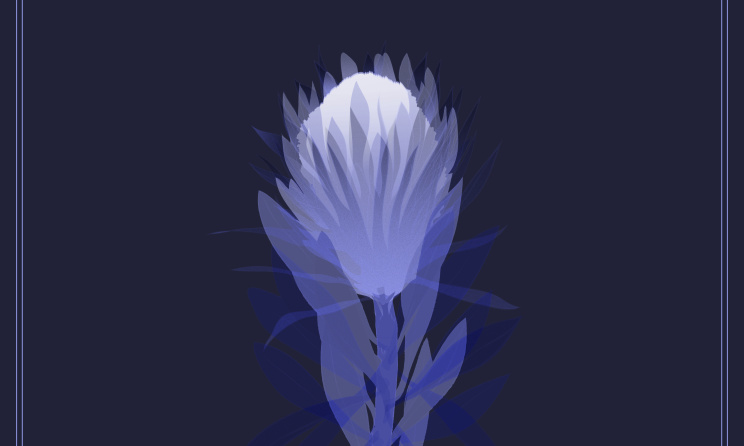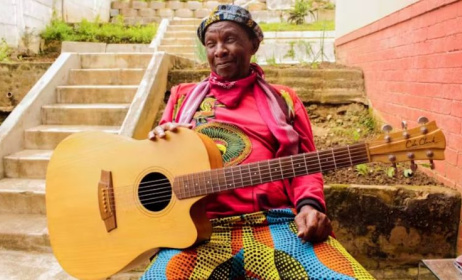Lieva Starker – Weerspieëlings
Weerspieëlings by Lieva Starker is a welcomed addition to the growing body of South African contemproray classical music. The album features five works of South African origin for solo violin.
 Weerspieëlings cover art.
Weerspieëlings cover art.
South Africa boasts a rich history of producing some of the world’s finest violinists. Pieter Schoeman, the concertmaster of the London Philharmonic, David Juritz, the former leader of the London Mozart Players, Zoë Beyers, associate leader of the City of Birmingham Symphony Orchestra, and recently, the young Pendo Masote, who will soon be joining the prestigious Yehudi Menuhin School, are among those who have taken on important roles on the international stage.
Yet, for all the great violinists, South Africa has a comparatively impoverished history of violin recordings. To my knowledge, there does not exist a record solely dedicated to violin works of South African origin, and at most, single compositions for the instrument have featured on albums such as Robert Fokkens’s Tracing Lines (2014) or Kevin Volans’s violin:piano (2015). (Despite the latter’s title, it only features two works for violin.)
It is for this reason, then, that South African violinst Lieva Starker’s album, Weerspieëlings (Reflections), comes as a welcomed addition to the growing body of contemporary classical recordings to emerge from the country. The album, released on 26 April 2017, features five South African works for solo violin performed by Starker. Of these, two—'Mamela Mamela Mamela' by Lise Morrison and 'Spelling and Sounds' by Pierre-Henri Wicomb—were commissioned for the album.
'Variazioni Sopra una Ninnananna Africana' was written for Starker in 2007 by Hendrik Hofmeyr. 'Cycles' by Clare Loveday was composed in 2014 for the Johannesburg International Mozart Festival where it was premiered by Waldo Alexander as part of an installation with sculptor Nandipha Mntambo. 'Passi Leggieri' by Kevin Volans is the only work on the album that has been recorded before, and features on Volans’s violin:piano mentioned above. The album was independently produced and recorded at Flood Studio in Birmingham, UK, where Starker is currently studying violin performance.
"Curated around the ideas of memory, reflection and reiteration," as Starker writes in the liner notes, it may not come as a surprise that the majority of the album suggests a strong minimalist influence. 'Passi Leggieri', for instance, conjures the slowly unfolding sound worlds reminiscent of Morton Feldman’s music, but deviates in the brisk dance-like material that lends the work its title, ‘light steps’.
Opening with a lengthy meditation on frugal flageolets, 'Cycles' is starkly minimal in its material until a more robust—though still fragmented—section emerges toward the end of the work. 'Mamela Mamela Mamela' also employs minimalist techniques in its repetitive, percussive opening and its evocative use of pauses that create a sense of distance and sparseness. Yet, framed in this arid musical landscape are some of the album’s most lyrical melodies, all deeply charged with desire and longing.
Desire, however, returns in a different guise in Pierre-Henri’s composition, 'Spelling and Sounds'. Here, and unlike some of the lusher melodic lines heard before, desire is incessant, if not "obsessive", as the liner notes suggest. The constant—almost aggressive—return to a single idea in this work makes it perhaps one of the most cohesive on the album, but it also recasts the intimate medium of the solo violin as a medium well-suited to searching, or even digging, into its rich sonic palate.
Indeed, Starker manages to draw out an impressive timbral range here, without losing the sense of cohesion that draws the work together. Overall, this work stands out for its rich and probing engagement with the instrument, allowing the performer ample space to meditate on what it means to perform solo violin music.
As such, it stands in stark contrast to the last work on the album, 'Variazioni Sopra una Ninnananna Africana'. As a set of variations on the Zulu lullaby 'Thula Baba', the work somewhat uncritically expounds a 19th century virtuosic approach to solo violin music, a genre which affords the performer little more than an opportunity to show off their chops. Considering that the piece was written for Starker when she was 13 years old, it perhaps does not come as a surprise that she does seize the opportunity to indulge in the virtuosic nature of the work, producing a thrilling performance. But she also brings a degree of subtly to the work in her intricate, fragile interpretation of the original lullaby theme, maintaining the atmospheric tension it offers.
As a whole, Weerspieëlings does not only constitute a valuable addition to South Africa’s corpus of classical music recordings. It is also a wonderful achievement in the fine, delicate, and intimate artistry offered by the solo violin medium. Perhaps, if this album finds traction, it will inspire more recordings of contemporary classical South African music. If not, it will still stand as a highly ambitious and incredibly brave recording.
The album is available on iTunes, Amazon, and Spotify and is distributed by CD Baby.
Artist: Lieva Starker
Album: Weerspieëlings
Label, Year: Independent, 2017



































Comments
Log in or register to post comments